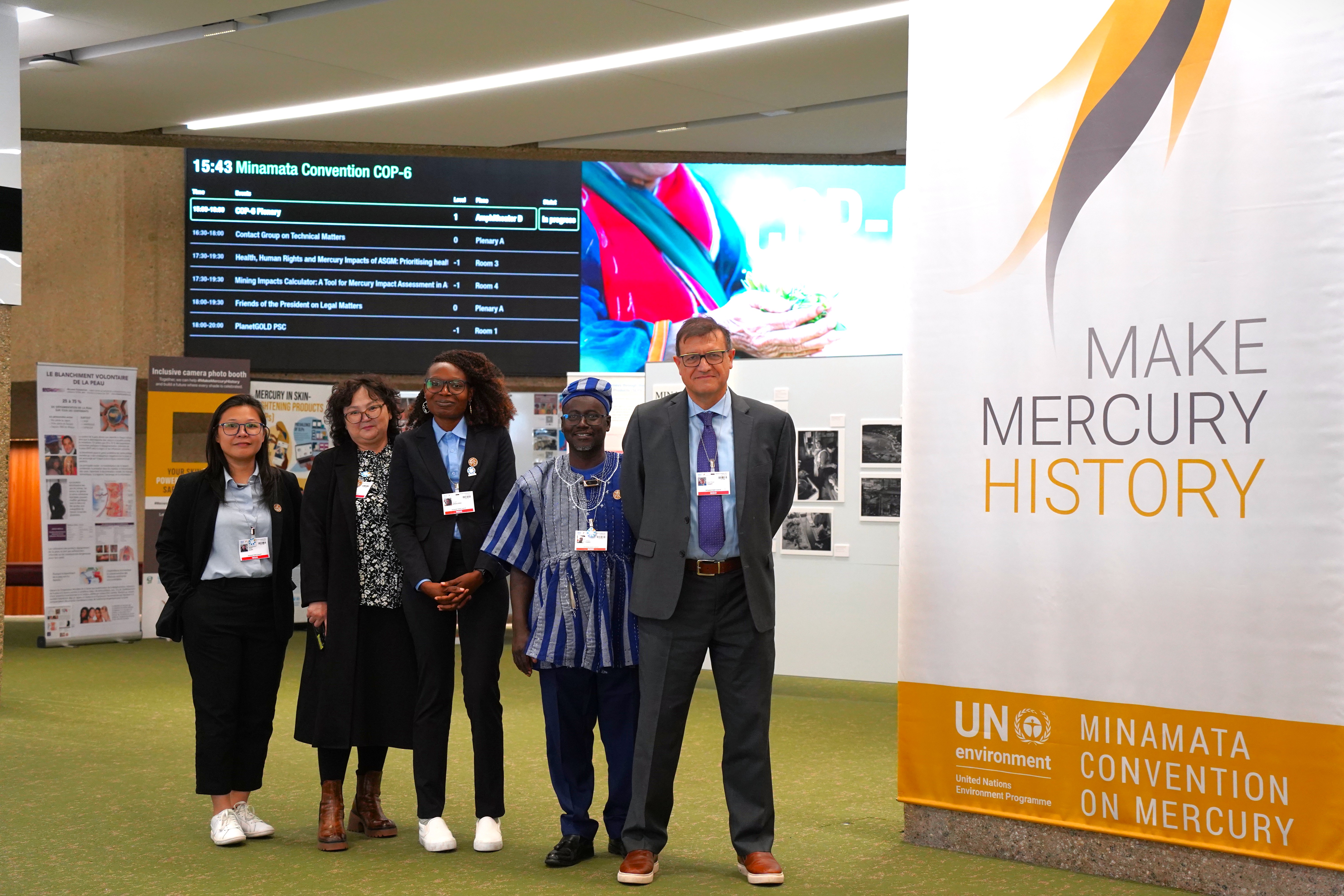A call to action to carry out measures to mitigate the impacts of COVID-19 on Artisanal Gold Mining communities
We cannot currently foresee all the direct and indirect consequences of the COVID-19 pandemic
We cannot currently foresee all the direct and indirect consequences of the COVID-19 pandemic on the 100 million people in artisanal and small-scale gold mining communities (ASGM) all around the world (80+ countries). However, the impact is going to be profound. AGC is therefore reaching out to all stakeholders involved with, and focused on, improving the sector to consider taking the following actions.These actions are intended to: (1) reduce the impact of COVID-19 on ASGM and other rural communities; (2) counteract the potentially devastating effects of COVID-19 on livelihoods by ensuring that current ASGM improvement projects continue unabated; and (3) that efforts to create a more profitable, more organized, and safer ASGM sector are accelerated in the nearest future to put the ASGM community in a better state of preparedness for other potential shocks.1.     Seek commitment: Advocate governments and other potential funders to commit to continued and increased support for ASGM improvements throughout the COVID-19 crisis and afterwards. Improvement efforts and continued support are essential considering the direct and indirect impacts of COVID-19 on this vulnerable community and the possible surge in ASGM activities that COVID-19 will cause. Disease control will be a global top priority and the United Nations is currently launching an emergency fund to tackle COVID-19 in the most vulnerable countries. Let’s make sure that the context and opportunity that ASGM represents in this fight are well known. 2.     Act accordingly and as behavioural examples worldwide: As organizations involved in international development, we need to ensure that our national teams and partners in various countries of the world are safe and have adequate workplace protocols in place. Teams should act as behavioural examples for the ASGM community. They should obtain regular updates about the situation on the ground, fully respect national policies, and provide additional information on COVID-19 from reputable sources as required to counter uncertainties and misinformation.3.     Manage impacts on existing operations: Prevent existing ASGM projects from collapsing or suffering severe setbacks. Hope for the best but prepare for the worst. Obtain a deep understanding of project cashflows. Hold strategic discussions with funders and directors to ensure they are aware and are helping to keep resources flowing. Consider the possibility of unusual disruptions like a breakdown in project banking functionalities that could starve projects of needed resources. Request advances while systems are still operational. Carry out programmatic activities creatively during travel restrictions through online activities like webinars and video conferencing. Have national project partners and national teams reach out with information about projects to ASGM communities.4.     Broadcast COVID-19 health advice into ASGM communities: Support an effective response to COVID-19 in any ASGM communities that are connected to projects through national teams and partners by providing information and training on COVID-19 exposure, transmission, symptoms, and preventive measures, in line with national guidelines and public health measures. Local action is key to fighting the pandemic!5.     Share knowledge: Stakeholders working with ASGM communities should share reliable information through their websites, social media, other platforms, and any newly created networks. Reliable information about how COVID-19 is impacting ASGM communities is practically non-existent and will remain rare. This includes direct health impacts and indirect impacts on the local economy, for example, the price of gold or the supply of goods. Yet information is crucial to best direct the few resources that may be available to mitigate impacts.6.     Build a public health network for ASGM communities: The current public health crisis caused by COVID-19 sets the stage for the development of an ASGM-focused public health network that can perform research, fill knowledge gaps, share good practices, and provide public health services. Such a network can initially target COVID-19-related actions like sharing health information and providing education and collecting health data, but can later broaden to include other important ASGM occupational health problems and social determinants of health. Data on ASGM communities is very sparse but these communities are important economic hubs (and likely growing ones) that are heavily visited. They may be excellent nodes in public health networks that can serve as sentinel sites and participate in monitoring and evaluating rural health status.CONTEXTThe ASGM Economy - The COVID-19 pandemic will have significant and long-term impacts on the gross economy of most of the 80+ Artisanal and Small-scale Gold Mining (ASGM) countries. A loss of formal jobs in sectors such as tourism, the service sector, manufacturing, etc., is going to happen in these countries as it is in the G20 countries. This, combined with the rising value of gold (particularly relative to local currencies), will almost certainly cause the population of the ASGM sector and its communities to swell. Economic necessity and ASGM’s low entry barriers will pull people into the sector. This dynamic situation will impact the health and income of ASGM miners and their communities as well as the sector’s secondary economy – the ASGM service sector. There will be winners and losers, but a rapid influx of people will mean mostly the latter. Certainly, there will be an increased chance of conflict and inequality.Vulnerability of ASGM communities - Though ASGM communities are quite heterogenous, they can be considered a highly vulnerable group in the COVID-19 crisis[1] since they are located in remote areas with limited access to healthcare services greatly diminishing the possibility of early screening, access to information, and adequate treatment. Limited infrastructure and communication can impede preventive measures such as hygiene and social distancing protocols. And occupational and livelihood-related risk factors such as silicosis, tuberculosis, and mercury intoxication, increase the severity of COVID-19. Furthermore, shifts and tensions in ASGM communities and populations caused by an influx of predominantly male workers could easily aggravate gender inequalities, making women and girls even more vulnerable.Responses to the pandemic - The primary international and national first-line response mechanisms focus on the healthcare sector (screening, isolation, treatment) and community-based measures (e.g., hygiene and social distancing) to mitigate the spread of COVID-19. However, the indirect costs caused by the medium and long-term effects of the pandemic on livelihoods will require a concerted effort and allocation of resources to limit the devastating impacts of COVID-19.




.png)
